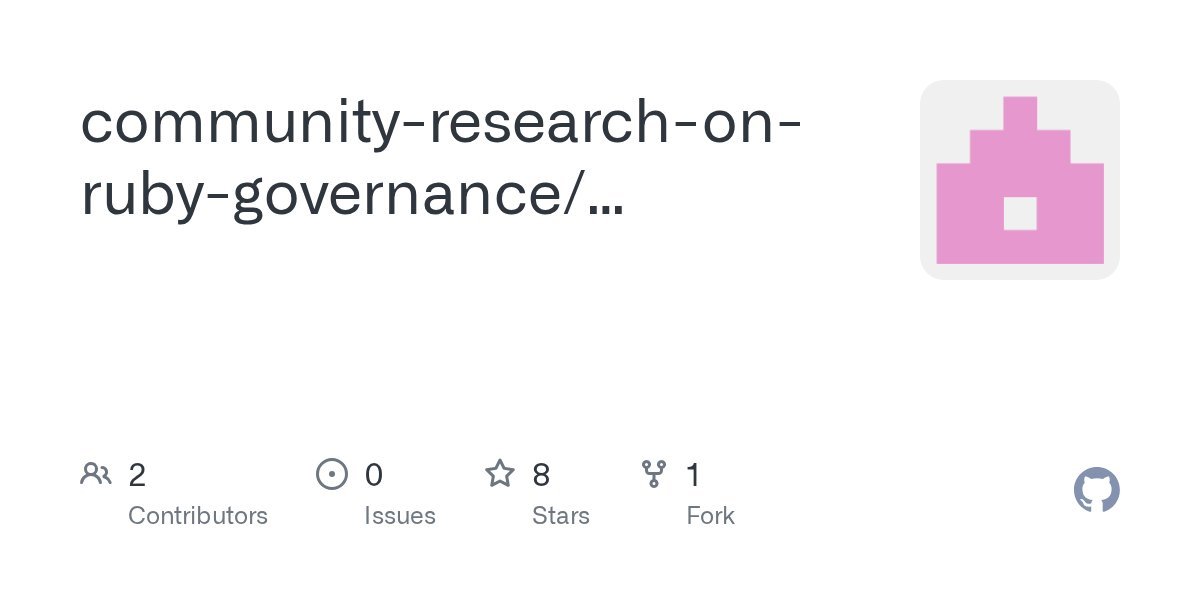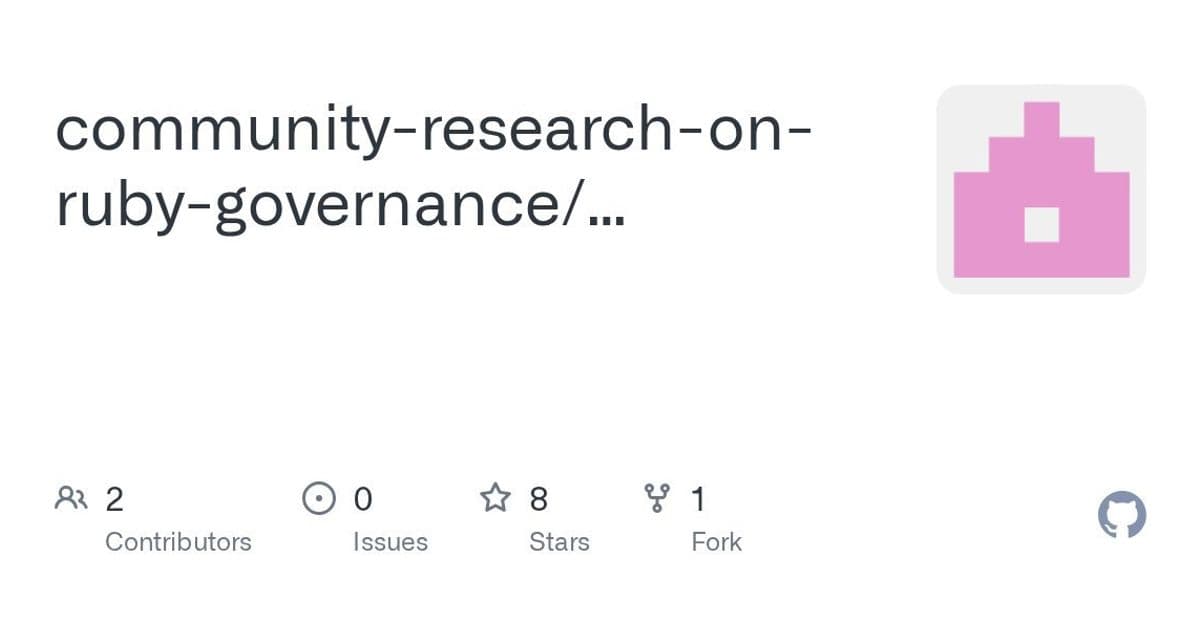Frustrated by canceled listening sessions and opaque governance, Ruby developers are creating a public repository to document unanswered questions for Ruby Central. This grassroots effort aims to pressure the organization behind RubyGems and RubyConf toward greater transparency in managing critical infrastructure.

The Ruby community is escalating its demands for transparency from Ruby Central—the nonprofit managing RubyGems and RubyConf—after a series of broken commitments eroded trust. The conflict reached a boiling point when Ruby Central canceled a promised community listening session (intended to address governance concerns) and replaced it with a private Google Form, effectively silencing open dialogue about the stewardship of Ruby's core infrastructure.
This marks the second transparency failure in recent months. After DHH's controversial RailsConf 2025 keynote announcement, Ruby Central hosted a listening session but never released the recording or summary. Now, with the latest canceled session, developers describe the feedback form as a "digital locked box" where concerns vanish without accountability—antithetical to open-source principles.
"It's table stakes for open governance to have these conversations in the open," states the initiative's GitHub repository. "While we cannot control Ruby Central's way of doing things, we can maintain a public record to hold the organization responsible."
The community response is tactical: developers are urged to submit questions through Ruby Central's official channel, then immediately file identical questions via pull request to a public QUESTIONS.md repository. This creates an immutable audit trail showing which concerns Ruby Central addresses—and which they ignore.
Why This Matters Beyond Ruby
- Infrastructure Trust: Ruby Central oversees RubyGems, which serves over 100 billion downloads annually. Opaque governance risks supply-chain security and ecosystem stability.
- Open-Source Precedent: How foundational projects handle community feedback sets standards for open-source legitimacy worldwide.
- Developer Agency: The initiative demonstrates how communities can self-organize when institutional channels fail, using Git workflows as accountability mechanisms.
The repository's creators emphasize participation momentum: "People only join once they see others involved." Each added question pressures Ruby Central to justify decisions publicly rather than behind closed doors—a crucial test for an organization managing a language used by millions.
As one contributor noted: "This is a simple act of civic service for a language we all love." The repository's growth will signal whether Ruby Central heeds its community or deepens the governance rift.
Source: GitHub Repository

Comments
Please log in or register to join the discussion